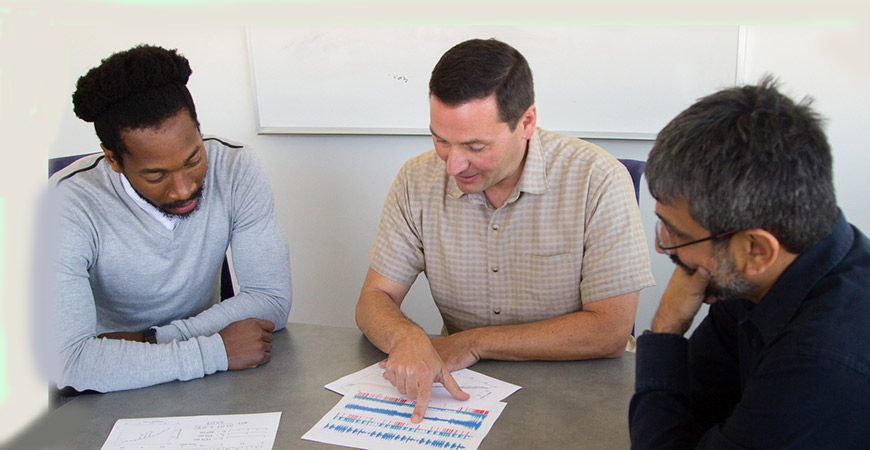
UC Merced is partnering with UC Santa Barbara and two California State University campuses — Fresno and Channel Islands — on a project to create a more diverse STEM faculty at colleges and universities nationwide.
The quartet has been awarded a total of $2 million from the National Science Foundation’s Alliances for Graduate Education and the Professoriate (AGEP) program for a joint research project intended to increase the number of underrepresented minority faculty members in STEM fields.
The goal is to develop a model that’s applicable — and replicable.
“We are very pleased to partner with our UC and CSU colleagues to enhance graduate training on our campus and at UC Santa Barbara, with the goal of broadening and enriching the population of professors in California, as a model for the nation,” Associate Graduate Dean and Professor Chris Kello said.
The endeavor is one of only three such alliances to be funded by AGEP this year. All four campuses in the collaboration are designated Hispanic-serving institutions.
UC Santa Barbara Graduate Division Dean Carol Genetti, working with co-PIs UC Santa Barbara professors David Sherman and Anne Charity Hudley and UC Merced Graduate Dean Marjorie Zatz, wrote the project proposal after realizing doctoral students interested in teaching at a broad range of colleges and universities needed a variety of experience to be as prepared as possible. To get a better understanding of the type of training and mentoring that would facilitate those career pathways, they interviewed CSU professors who had earned their doctorates at UC Santa Barbara.
Through the grant, partner institutions will embark on a joint training program that incorporates UC and CSU teaching experience, mentorship, networking opportunities and career preparation for UC Ph.D. trainees.
Ten doctoral students — five from UC Santa Barbara and five from UC Merced — will participate in a teaching institute to learn about pedagogical practices for the CSU system. Each of those students will be paired with a CSU professor-mentor and apply that knowledge as a teaching fellow for a CSU undergraduate course. Later in the program, participating students will receive career advice and support with professional networking as they complete their dissertations and enter the job market.
“UC Merced will work closely with CSU Fresno to match five of our Ph.D. students with five CSU faculty mentors,” Kello said. “The UC Merced Ph.D. students will get exposure and training on professorial career pathways in the CSU system, and CSU Fresno will benefit from enriched interactions with our Ph.D. students and their research programs.”
The alliance is uniquely positioned to show how one can leverage the breadth of foci and expertise across different campuses within a state-funded system of higher education.
The project’s research component will investigate attitudes and assumptions of Ph.D. students and faculty members regarding the pursuit of different career paths, from teaching and industry to research-focused academic positions.
The alliance will leverage the prior development of a unique assessment training program tied to classroom instruction that was funded through the national Council of Graduate Schools.
“The alliance is uniquely positioned to show how one can leverage the breadth of foci and expertise across different campuses within a state-funded system of higher education, with the goal of enhancing graduate training and diversify the population of students who become professors,” Kello said. “We are thrilled to have Angela Winek join the team to lead this component of the program, and share our expertise with the other university partners so they may replicate similar programs on their campuses.”
“We are pleased to be able to continue our important work of supporting graduate students who identify as future faculty by offering specialized pedagogical training,” said Winek, a faculty member in the Merritt Writing Program and School of Social Sciences, Humanities and Arts.



